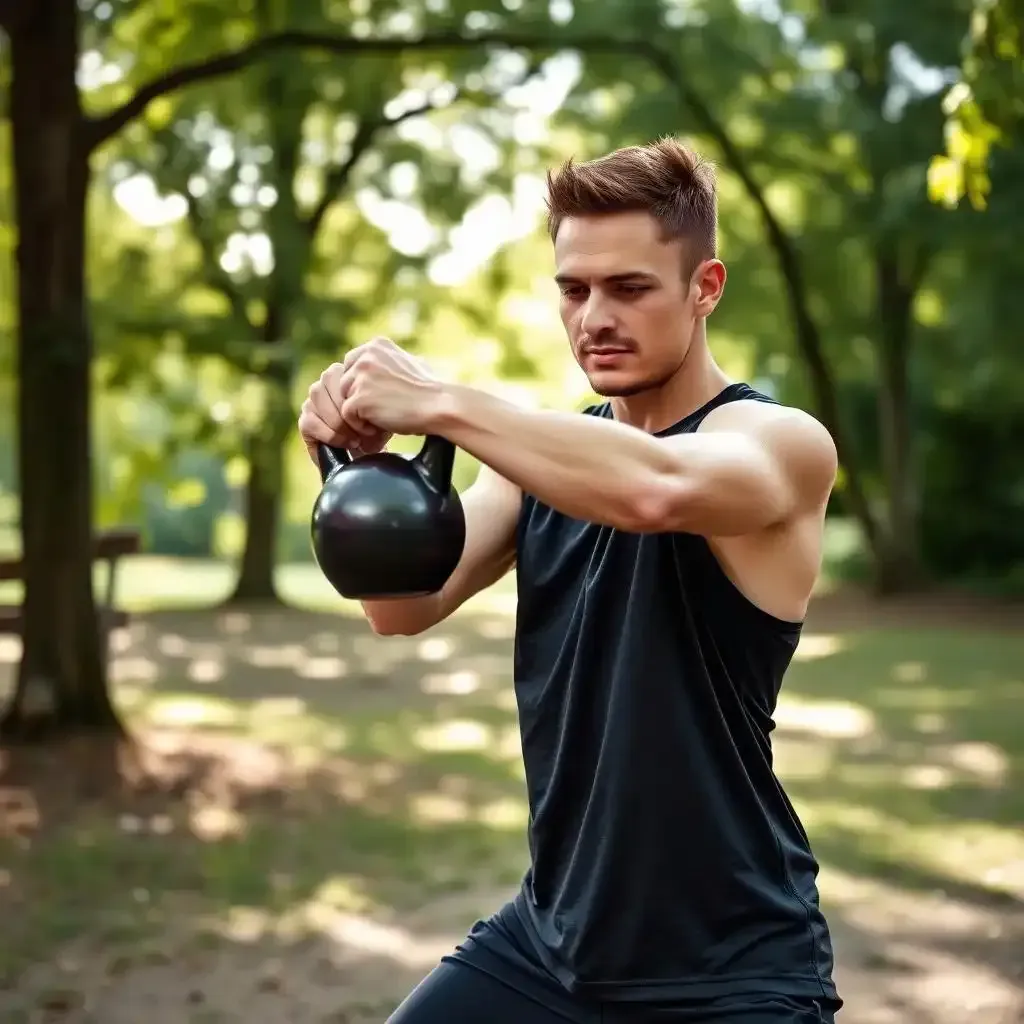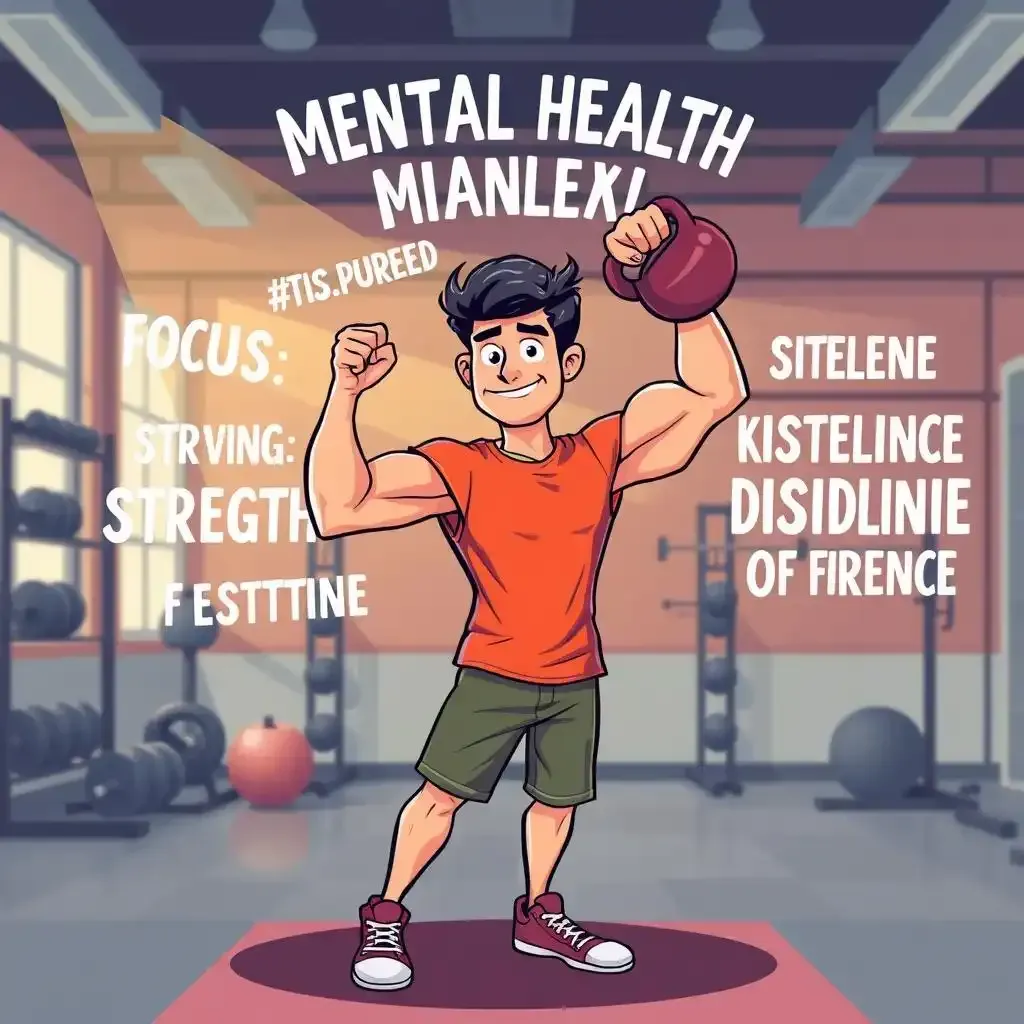Table of Contents
Welcome to kettlebellworkout.homes, your ultimate guide to unlocking the full potential of kettlebell training! If you're struggling with mental health issues such as depression and anxiety, you may have tried various treatments and therapies without finding the relief you need. But what if we told you that kettlebell training could be the key to unlocking a healthier, happier you? In this article, we'll explore into the world of kettlebell mental benefits, exploring the science behind how kettlebell training affects the brain and providing practical tips and tricks for maximizing its mental health benefits. So, what exactly are kettlebell mental benefits, and how can kettlebell training improve your mental well-being? Let's explore in and find out!
*"Kettlebell Mental Benefits: Can Kettlebell Training Really Improve Mental Health?"*

Kettlebell Mental Benefits Can Kettlebell Training Really Improve Mental Health
Reducing Anxiety and Depression
Kettlebell training isn't just about building muscle and getting fit; it can also be a powerful ally in the fight against mental health issues like anxiety and depression. Imagine you're feeling overwhelmed by a mountain of stress. Picking up a kettlebell and swinging it through the air can help you channel that stress into something productive. It's like turning a hurricane into a controlled firestorm.
A study found that kettlebell training can significantly reduce symptoms of anxiety and depression in healthy women. The rhythmic and repetitive nature of kettlebell exercises helps to calm the mind, much like meditation. When you're focused on the movement and the weight, your brain has less room to wander into negative thoughts. It's like giving your brain a gentle but firm hug, telling it, "It's okay, we got this."
- Reduces symptoms of anxiety and depression
- Calms the mind like meditation
- Focuses the brain on the movement
For a more detailed look at beginner kettlebell routines, check out our guide.
Improving Mood and Overall Well-being
One of the most immediate benefits of kettlebell training is the boost it gives to your mood. When you lift and swing a kettlebell, your body releases endorphins—those feel-good chemicals that give you a natural high. It's like your brain is saying, "Wow, I didn't know I could do that!" and rewarding you with a smile.
Beyond the quick hit of happiness, regular kettlebell training can lead to long-term improvements in your overall well-being. It's not just about feeling good in the moment; it's about building a foundation of mental resilience. Think of it as laying bricks in a sturdy wall that can withstand life's storms. Each workout is another brick, and over time, you'll have a strong, resilient structure to lean on when things get tough.
For more tips on getting started with kettlebells, check out our .
Boosting Confidence and Self-Esteem
When you start seeing physical improvements from kettlebell training—more muscle, better posture, and increased strength—it can do wonders for your self-esteem. It's like looking in the mirror and thinking, "Wow, I did that!" The sense of accomplishment is incredibly empowering. You're not just getting stronger physically; you're also building mental strength and confidence.
This boost in confidence can translate to other areas of your life. You might find yourself taking on challenges you previously thought were out of reach. Whether it's asking for that promotion at work or making new friends, the mental benefits of kettlebell training can ripple out into every aspect of your life. It's like a domino effect, where one small change can set off a chain reaction of positive outcomes.
Benefit | Impact | Result |
|---|---|---|
Physical strength | Improved posture | Increased confidence |
Muscle growth | Better balance | Greater self-esteem |
For a deeper explore into kettlebell basics, check out our .
*"The Science Behind Kettlebell Mental Benefits: How Kettlebell Training Affects the Brain"*
The Brain's Reward System: Why Kettlebells Make You Feel Good
Okay, so you're probably thinking, "Kettlebells? How do *those* help my brain?" Well, it's all about those awesome endorphins! Think of endorphins as your brain's tiny, happy-making superheroes. When you work out with kettlebells – especially when you're really pushing yourself – your body releases a flood of these endorphins. It's like a tiny party in your brain, complete with confetti and tiny disco balls (maybe not the disco balls, but you get the idea!). These endorphins act as natural mood boosters, helping to reduce stress and anxiety. They're like nature's little mood ring, always turning a positive shade of happy.
It's not just about the immediate happy feeling, though. Regular kettlebell training can actually change your brain's structure over time. Studies have shown that exercise increases the size of the hippocampus, which is the part of your brain involved in learning and memory. It’s like giving your brain a super-sized upgrade! So, not only will you feel better, but you'll also be sharper and more focused. Plus, regular exercise has been linked to improving sleep, which is super important for mental well-being. For more info on how to start, check out our .
- Endorphins: Your brain's happy chemicals!
- Hippocampus growth: Better learning and memory!
- Improved sleep: A crucial part of mental health!
Stress Reduction and Resilience: Kettlebells as Your Mental Shield
Life throws curveballs, right? Stress, deadlines, drama – it all adds up. But kettlebell training can help you build resilience, a kind of mental armor against life's little (and big) punches. See, when you're lifting those kettlebells, you're not just moving weights; you're building mental toughness. You're learning to push through challenges, to persevere, to conquer that little voice in your head that says, "You can't do it!" It’s like training your brain to be a mental ninja, ready to tackle anything that comes its way.
Kettlebell training also helps to reduce levels of cortisol, the stress hormone. High cortisol levels can lead to anxiety, depression, and even physical health problems. By reducing cortisol, kettlebell training helps to regulate your body's stress response, making you less reactive to stressful situations. It's like having a built-in chill pill. Plus, the focus required during kettlebell workouts can act as a form of meditation, helping to quiet the mental chatter and promoting a sense of calm. For a simple start, see our .
Stress Factor | Kettlebell Response | Result |
|---|---|---|
High Cortisol | Reduced Cortisol | Less anxiety |
Mental Chatter | Focused Training | Increased Calm |
Practical Applications of Kettlebell Mental Benefits: How to Use Kettlebell Training for Mental Wellbeing

Practical Applications Of Kettlebell Mental Benefits How To Use Kettlebell Training For Mental Wellbeing
So, you're ready to tap into the awesome capability of kettlebells for your mental health? Fantastic! But where do you even begin? It's not like you just magically become zen the second you pick up a kettlebell (though, wouldn't that be amazing?). It's about building a consistent practice, just like anything else that makes you stronger, whether it's your biceps or your brain.
First things first: start small. Don't go grabbing the heaviest kettlebell you can find and trying to do a thousand swings. That's a recipe for disaster—physical and mental! Begin with a weight that feels comfortable, and focus on proper form. Check out our guide for some basic moves. Remember, it's about the progression, not the race. Think of it as building a tower of blocks; you wouldn't start with the tallest ones, would you?
- Start with a light weight and focus on proper form.
- Consistency is key: aim for regular workouts, even if it's just for 15 minutes.
- Listen to your body: rest when you need to and don't push yourself too hard.
Next, find a workout routine that fits your lifestyle. Maybe you're a morning person, or maybe you prefer evening sessions. Whatever works for you! There are tons of beginner-friendly routines online, and we have some great resources on our site too – like our page. The important thing is to make it a habit, not a chore.
And finally, remember that this is about *you*. It's about finding a way to move your body, challenge yourself, and clear your head. Don't compare yourself to others. It's not a competition. Celebrate your small victories! Did you manage to do one more swing than last time? High five! Did you stick to your workout schedule even when you were tired? Give yourself a pat on the back! You're amazing!
Goal | Action | Benefit |
|---|---|---|
Reduce stress | 15-minute kettlebell workout | Improved mood |
Boost confidence | Master a new exercise | Increased self-esteem |
If you're struggling to find the motivation, consider working out with a friend or joining a class. Having someone to keep you accountable and share the experience with can make all the difference. Plus, it's a great way to socialize and connect with others who share your interest. For some extra tips, check out our page. Remember, building a strong mind and body takes time. Be patient, and celebrate your progress!
Don't forget to listen to your body. If you're feeling pain, stop! It's not worth pushing through pain, especially when you're just starting out. Check out our guide to ensure you're using proper form and protecting yourself from injury. Remember, a healthy body is a happy body, and a happy body is a happy mind!
*"Maximizing Kettlebell Mental Benefits: Tips and Tricks for Optimizing Mental Health through Kettlebell Training"*

Maximizing Kettlebell Mental Benefits Tips And Tricks For Optimizing Mental Health Through Kettlebell Training
Get Familiar with Your Kettlebell
One of the best ways to maximize kettlebell mental benefits is to start small and get familiar with your kettlebell. Choose a weight that feels comfortable, and begin with basic swings and exercises. This will help you build confidence and get a feel for how the kettlebell moves. As you progress, you can gradually increase the weight and intensity of your workouts.
When you're just starting out, it's essential to focus on proper form and technique. Consult with a fitness professional or take an online class to learn the basics of kettlebell training. This will help you avoid injury and get the most out of your workouts. For more information on kettlebell training for starters, check out our kettlebell training for starters guide.
Tips for Maximizing Kettlebell Mental Benefits | Why It Works |
|---|---|
Start small and progress gradually | Builds confidence and avoids burnout |
Focus on proper form and technique | Reduces risk of injury and optimizes results |
Create a Consistent Routine
A consistent routine is key to maximizing kettlebell mental benefits. Aim to work out at the same time every day, and try to stick to a regular schedule. This will help your body and mind get into a rhythm, making it easier to stay motivated and focused. For more tips on creating a consistent routine, check out our kettlebell workout routines guide.
- Establish a regular workout schedule
- Stick to a consistent routine
- Make adjustments as needed
In conclusion, kitebell training goes well beyond just physical fitness; it has the potential to transform your mental health and well-being. By incorporating kettlebell training into your routine, you can harness the capability of kettlebell mental benefits and open up a happier, healthier you. Remember to start small, be consistent, and listen to your body - and don't be afraid to seek help when you need it. With kettlebell training, you can take the first step towards a brighter, more balanced future. So why wait? Get swinging, and let the kettlebell mental benefits begin!